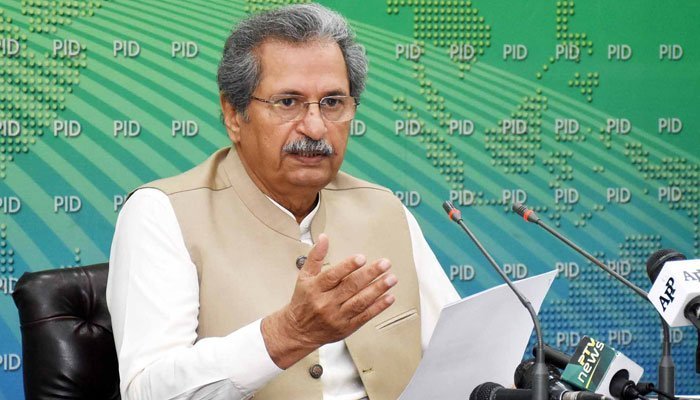Last month, Minister for Education Shafqat Mahmood voiced his disappointment at the language used by young students on Twitter and social media. Responding to a question by senior anchorperson Asma Shiraz, Mahmood said: “The kind of language these children are using on Twitter, I think it is a collective failure of the government, teachers and parents. One feels ashamed.” Shafqat Mahmood was being trolled by students online for not postponing their exams. Later, the government did postpone the exams till June 15.
Lawyer and activist Jibran Nasir, who was leading voices to raise the issue of exams on social media and a vocal critic of Shafqat Mahmood, came to the latter’s defence regarding online abuse. Jibran tweeted: “Dear Students, anyone encouraging you to make nasty comments or insulting tweets to highlight your exam issue doesn’t have your best interest at heart. I’ll repeat don’t hurt your cause or embarrass those supporting you by participating in such trends. Keep it clean & respectful.”
Unfortunately, online trolling and abuse has become a norm in recent years. Trolls are basically people who attack people online in a vicious and malicious way. There are many studies that observe why trolls behave this way. Dr Mark Griffiths, Professor of Behavioural Addiction at Nottingham Trent University, told the BBC that most people troll others “for either revenge, for attention seeking, for boredom, and for personal amusement”. Then there are paid trolls who are part of political parties and other interest groups. It is their job to silence their critics by attacking them. Politicians, journalists, feminists, activists and many others face vicious online troll attacks in Pakistan and other countries. But this does not make it right. Trolls feel powerful because of the anonymity that social media provides. A lot of trolls do not use their own real names and identities. This makes them feel even more ‘powerful’ and they think they can say anything to anyone, be it celebrities, politicians, journalists, etc. Trolls also think that there are no consequences for such behaviour but this is not completely true either. In some cases, trolls who were identified have lost their jobs, have been expelled from educational institutions and some have even gone to jail for threatening others online.
Shafqat Mahmood’s disappointment is something that everyone who has faced online trolling can relate to. We hope that young students and other people who think they can say anything and everything to strangers just because it’s an online space will introspect and behave more appropriately, as they would do in an offline space.







